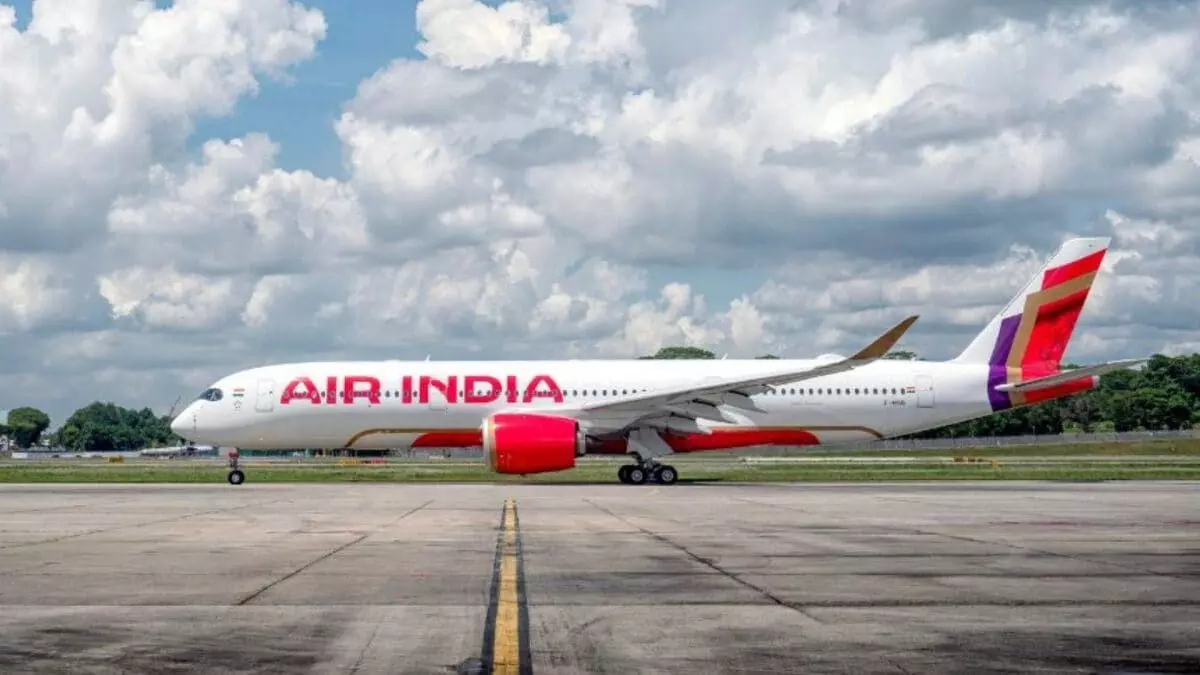Flight bomb scare: Delhi Police writes to social media platforms to get offenders' details
Delhi Police wrote to social media platforms seeking details of the accounts that posted threatening messages about bombs in seven flights
By Newsmeter Network
Representational Image
New Delhi: Intensifying its probe on the hoax bomb threats received by several domestic and international flights, Delhi Police on Thursday wrote to social media platforms seeking details of the accounts that posted threatening messages. Delhi Police on Wednesday registered an FIR in connection with the bomb threat to Bengaluru-bound Akasa Air flight carrying 180 people and also launched a probe in seven other similar cases reported at Indira Gandhi International (IGI) Airport this month.
A senior police officer said a dedicated team has been formed to probe bomb threat cases. A team of cyber cell of Delhi police, Intelligence Fusion & Strategic Operations (IFSO) has also been roped in for the probe. On Wednesday, police approached the social media platforms to suspend the handles that posted threatening messages and remove the posts.
Messages from dark web on X
"It is suspected that the handler used VPN (Virtual private network) or dark web browser to set up the accounts on X and then posted the messages from more than one account," the officer said. "To get the IP addresses, we have written to the social media platform," the officer said, adding they have also contacted Mumbai Police as they have also registered an FIR in the matter.
Deputy Commissioner of Police (IGI) Usha Rangnani on Wednesday said, "Airport police has responded to eight incidents involving reported bomb threats this month. After thorough verifications and inspection, all threats were confirmed to be hoaxes."
Legal action has been initiated against those responsible for these false alarms so that strict measures are taken against them, and to ensure the safety and security of passengers and airport operations, she said.
Seven flights receive bomb threat
Seven flights, including one bound for the United States, received bomb-threat messages through a social media handle on Tuesday, prompting security agencies to undertake specific counter-terrorist drills at various airports, official sources said.
The threats via microblogging platform X came a day after three international flights originating from Mumbai received bomb threats, causing trouble to hundreds of passengers and airline crew. The messages posted on Monday were declared a hoax.
The sources said an X handle issued threats on Tuesday to seven flights -- an Air India Express flight from Jaipur to Bengaluru via Ayodhya (IX765), a SpiceJet flight from Darbhanga to Mumbai (SG116), an Akasa Air flight from Bagdogra to Bengaluru (QP 1373), an Air India flight from Delhi to Chicago (AI 127), an Indigo flight from Dammam (Saudi Arabia) to Lucknow (6E 98), an Alliance Air Amritsar-Dehradun-Delhi flight (9I 650) and an Air India Express flight (IX 684) from Madurai to Singapore.
The X handle has since been suspended by the platform after the Bureau of Civil Aviation Security (BCAS) wrote to cyber-security agencies.
An Air India Express spokesperson told PTI in a statement that they, along with a few other operators, received a "specific" security threat from an unverified social media handle.
"In response, security protocols were promptly activated as directed by the government-appointed Bomb Threat Assessment Committee. The flight landed safely, and the aircraft will be released for operations following all mandated security procedures," the spokesperson said.
The SpiceJet aircraft landed safely at the Mumbai airport and was directed to an isolation bay as a precautionary measure.
"All passengers disembarked normally and security agencies were immediately notified. After thorough security checks, the aircraft has been cleared for further operations," a SpiceJet spokesperson said.
An Akasa Air spokesperson said their flight received a security alert on board.
"The captain followed all required emergency procedures and landed safely at the Kempegowda International Airport, Bengaluru at 13:39 hours. All passengers were deplaned and the local authorities undertook the necessary safety and security checks after which the aircraft was released for operations," the spokesperson said.
The Air India flight was diverted to the Iqaluit airport in Canada after it became the "subject of a security threat posted online".
"The aircraft and passengers are being re-screened according to the laid-down security protocol. Air India has activated agencies at the airport to assist the passengers until such time that their journey can resume," an AI spokesperson said.
Indigo said in a statement that it was "cognisant of a situation involving flight 6E 98 from Dammam to Lucknow".
"The safety and security of our passengers and crew is our highest priority and we are working closely with the relevant authorities and taking all necessary precautions as per the guidelines," a spokesperson for the airline said.
The Dammam-Lucknow flight landed at the Jaipur airport following its diversion. The aircraft has been sent to an isolation bay, an official at the Jaipur airport said.
An Alliance Air official said all "precautionary measures" were being taken for the Amritsar-Dehradun-Delhi flight, which was undergoing security checks at the Dehradun airport.
Air India Express sources said their Madurai-Singapore flight was awaiting an approval from Singaporean authorities for landing.
The suspect X handle tagged the respective airlines' and some police handles, claiming that bombs were placed on these planes, the sources said.
Four different X handles issued a similar threat to three international flights originating from Mumbai on Monday.
All the messages on Monday were declared a hoax after security and intelligence agencies as well as airline and airport operators carried out stipulated anti-terrorist security drills that are activated in case of bomb or hijack threats, the sources said.
Officials said the BCAS has sought the help of Indian cyber-security agencies and police to trace the person or people behind these threats.
(Inputs from PTI)